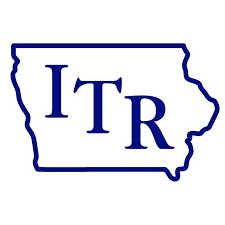Dallas County sales tax vote getting eyeballs in Polk County

Here’s an alert to Dallas County voters: The eyes of Polk County are upon you today as you vote on the adoption of a penny-on-the-dollar local option sales tax.
“I want to see how Dallas County shakes out,” Des Moines City Manager Scott Sanders said.
Although there are countless city seats up for grabs across Greater Des Moines, the vote in Dallas County that is being watched with high interest is for implementation of a local option sales tax.
Because of a quirk in state law, Dallas County communities that share borders with Des Moines and other cities in Polk County — Clive, Grimes, Urbandale, Waukee and West Des Moines — will vote as one block on whether to approve the tax, which adds 1 cent to the state sales tax. Unlike the bulk of sales tax revenues, a portion of the funds generated by the local option sales tax can flow back to communities where it is approved.
It is a key vote for city officials who view those funds as a way to make up for a decline in tax rates on commercial property to 90 percent from 100 percent and rates on mutifamily properties that will drop from 100 percent to levels assessed on single-family properties.
With the state budget failing to meet revenue projections, city leaders also are concerned about the possibility of losing a state-funded backfill in fiscal 2019 that was promised under a 2013 state law that lowered the taxable values of commercial and multifamily properties.
Sanders and officials in other cities believe the Dallas County vote could provide an indication of whether Polk County voters would approve a local option sales tax.
If the measure passes, it is likely that Des Moines and other Polk County communities will ask Polk County supervisors to put the issue on the March ballot. The timing is important. If approved, the local option sales tax would take effect in both counties on July 1.
“We are backward planning from a March potential,” Sanders said.
Later this month, the city of Des Moines is expected to learn the results of a survey to test city voters’ attitudes toward adopting the tax.
According to the Iowa Department of Revenue, Des Moines could expect to generate $37 million in additional revenue under the tax, based on sales tax collections in 2016.
Among other things, the additional revenues could help the city pay for deferred maintenance on facilities and equipment. By receiving the additional sales tax revenues, the city might be able to avoid increases in its property tax rates, Sanders said.
Jeff Mark, city administrator in Altoona, is paying attention to the Dallas County vote.
“Altoona would benefit greatly from a local option sales tax,” he said.
Projects that were deferred during the Great Recession still need to “get done,” Marks said, naming a number of major streets projects that sales tax revenue could help pay for in lieu of using property taxes.










